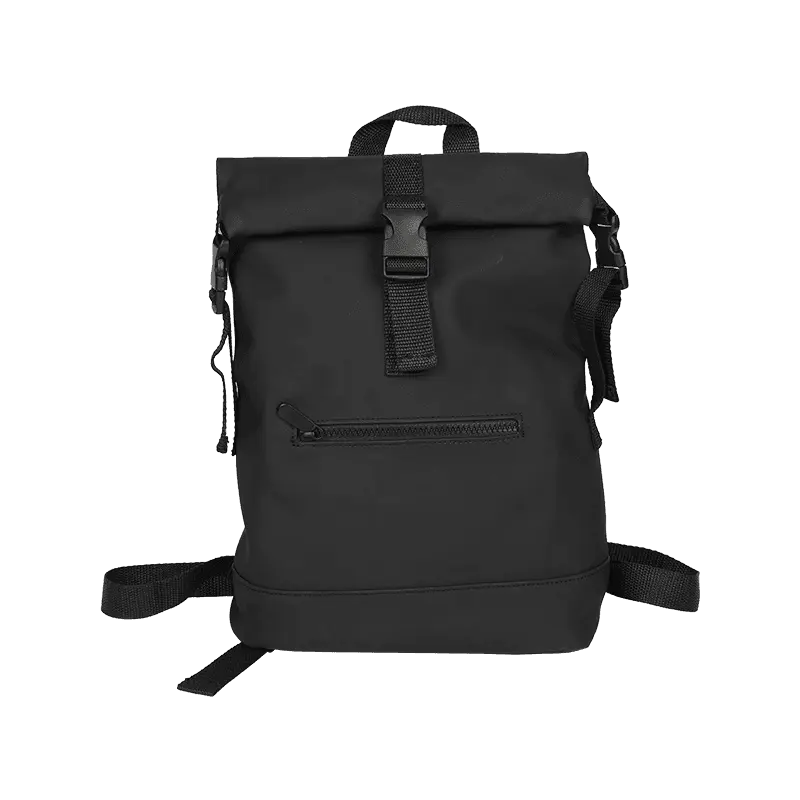Beyond Stitching: What Makes a True Quality Backpacks Factory

For brands, retailers, and resellers, finding a true Quality Backpacks Factory is the difference between launching a successful product line and dealing with returns, damaged goods, and a tarnished reputation. But quality transcends just sturdy stitching. It's a holistic approach to manufacturing that encompasses materials, innovation, and partnership.
1. Material Sourcing
The foundation of any durable backpack is its materials. A reputable Quality Backpacks Factory does more than just cut and sew; it acts as a knowledgeable sourcing partner.
Fabric Expertise: They should be proficient with high-denier nylons (e.g., Cordura), polyester blends, and canvas, understanding the weight, tear strength, and water-resistance appropriate for different use cases (e.g., daily commute vs. rugged hiking).
Hardware Partnerships: Do they use YKK zippers, UTX-Duraflex buckles, or other industry-leading components? A factory invested in quality will have established relationships with top hardware suppliers, ensuring smooth operation and longevity.
Foam and Padding: The quality of foam in laptop sleeves and back panels is crucial for protection and comfort. Inquire about their standard densities and thicknesses.
2. How Does a Quality-Centric Factory Future-Proof Its Designs?
The market evolves, and so should your manufacturing partner. A forward-thinking factory integrates features that meet modern demands.
Integrated Technology: Look for experience in creating backpacks with dedicated laptop compartments (with false bottoms for drop protection), cable management ports, and RFID-blocking pockets.
Ergonomic Innovation: The best factories invest in R&D for advanced back panel ventilation systems, load-bearing hip belts, and adjustable, padded straps that are tested for long-term comfort.
Organizational Intelligence: They should offer smart, functional layouts with a variety of pocket types—from quick-access tops to expandable bottle holders—that enhance usability without compromising the bag's structure.
3. What Verifiable Processes Guarantee Consistency and Durability?
Anyone can claim quality; a professional factory proves it through rigorous, documented processes.
Stitch-Per-Inch (SPI) Standards: High SPI counts (e.g., 8-10) and the use of reinforced bar-tacking at all critical stress points (straps, handles, zippers) are non-negotiable for durability.
In-House Testing: Do they conduct box-drop tests, abrasion tests on fabric, zip cycle tests, and water-resistant spray tests? This in-house QC prevents defects before shipment.
Compliance and Certification: A commitment to quality is often reflected in certifications like ISO 9001 or BSCI, which audit their management and production systems.
4. Is Your Factory a Partner or Just a Supplier?
The relationship dynamic is critical. A true partner adds value beyond production capacity.
Design for Manufacturability (DFM): Will they provide feedback on your designs to improve constructability and reduce costs without sacrificing integrity?
Prototyping and Sampling: A transparent process with clear sampling stages is essential to perfect the product before mass production.
Communication and Flexibility: Are they responsive and able to accommodate your specific MOQs while maintaining quality? They should feel like an extension of your own team.
Choosing a Quality Backpacks Factory is a strategic decision that impacts your product's market reception and your brand's long-term viability. By scrutinizing their material choices, innovative capabilities, verifiable testing protocols, and partnership approach, you can forge a relationship that delivers not just products, but peace of mind and a foundation for success.
- Art
- Causes
- Crafts
- Dance
- Drinks
- Film
- Fitness
- Food
- Spellen
- Gardening
- Health
- Home
- Literature
- Music
- Networking
- Other
- Party
- Religion
- Shopping
- Sports
- Theater
- Wellness
